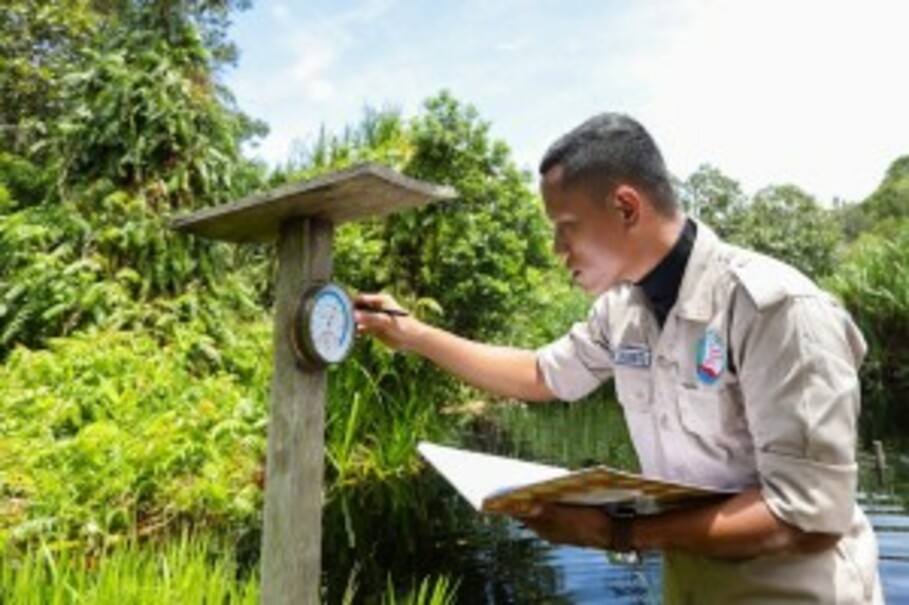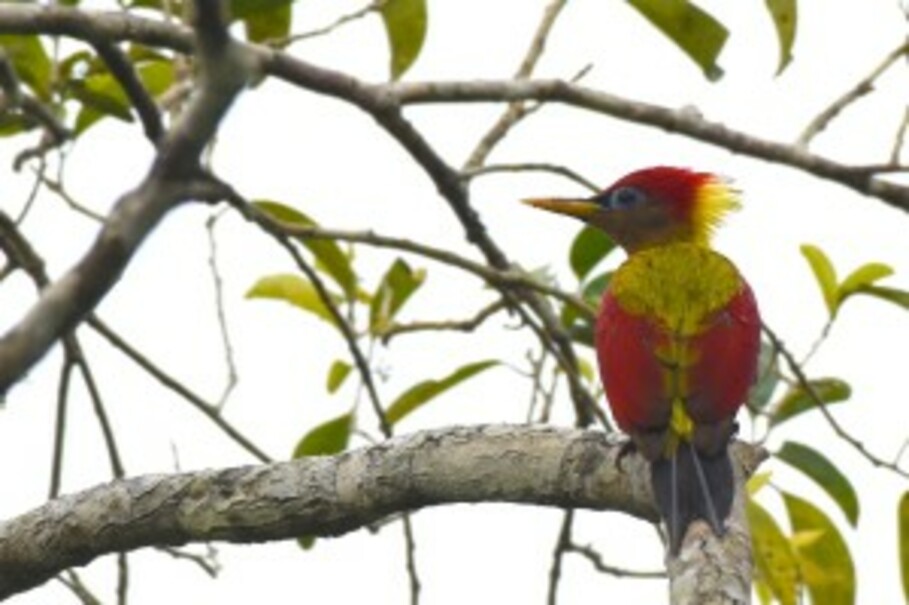"It's very important that we work together with everyone in these areas. This is because an ecosystem cannot be separated from one part to the next. If we carry out efforts to protect, while others don't do the same, what we do will not be sustainable in the long run," Nyoman told the Jakarta Globe in a recent interview.
Working With Local Communities
Since 2015, the program has recorded zero fires within the concession area, as outlined in RER's 2017 report. Nyoman said this is the result of ongoing monitoring efforts, awareness campaigns and collaborative efforts with local communities to support the use of improved farming methods.
Close monitoring has played a crucial role in fire prevention, and RER has established eight weather stations in the area. These stations monitor daily weather conditions and calculate fire danger ratings.

(Photo courtesy of RER)
As traditional farming practices involve controlled burning in peatland, which is seen as a fast and easy method to clear land, RER has been helping local farmers to learn about and adopt no-burn farming practices.
"We are trying to invite them to shift away from their traditional methods, by providing them with alternatives," said Nyoman.
RER provides communities with seedlings (such as chili, eggplant and red ginger) equipment and other supplies, while also facilitating discussions on improving crop productivity.
No-burn farming has actually generated additional income for those villages that have adopted the new farming practices, while it simultaneously increases awareness of the need for fire prevention.
In addition, RER also works with groups of fishermen group on the Serkap River, who have agreed to stop destructive fishing practices in order to maintain the health of the river's ecosystem. As part of an ongoing agreement, the fishermen also report their catches to RER rangers.
Protecting Endangered Species

(Photo courtesy of RER)
According to data collected by RER, there are 757 plant and animal species on the Kampar Peninsula as of June 2018. These include 48 globally threatened species such as the critically endangered Sumatran tiger, Sunda pangolin and the helmeted hornbill.
RER has been monitoring biodiversity in the area by utilizing camera traps and through visual surveys since 2015.
"This shows the importance of protecting this ecosystem, because it is home to many species of flora and fauna," Nyoman said.